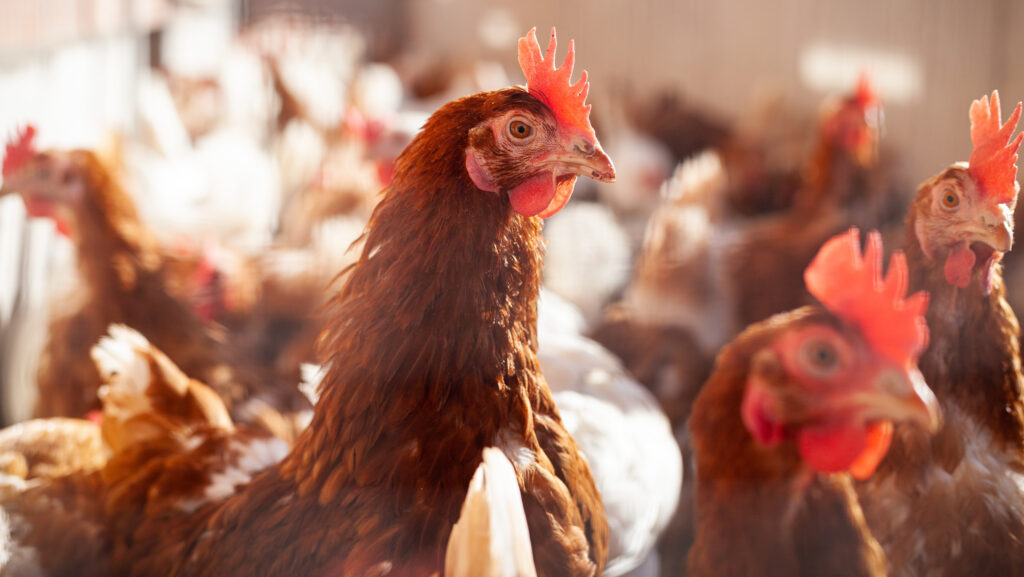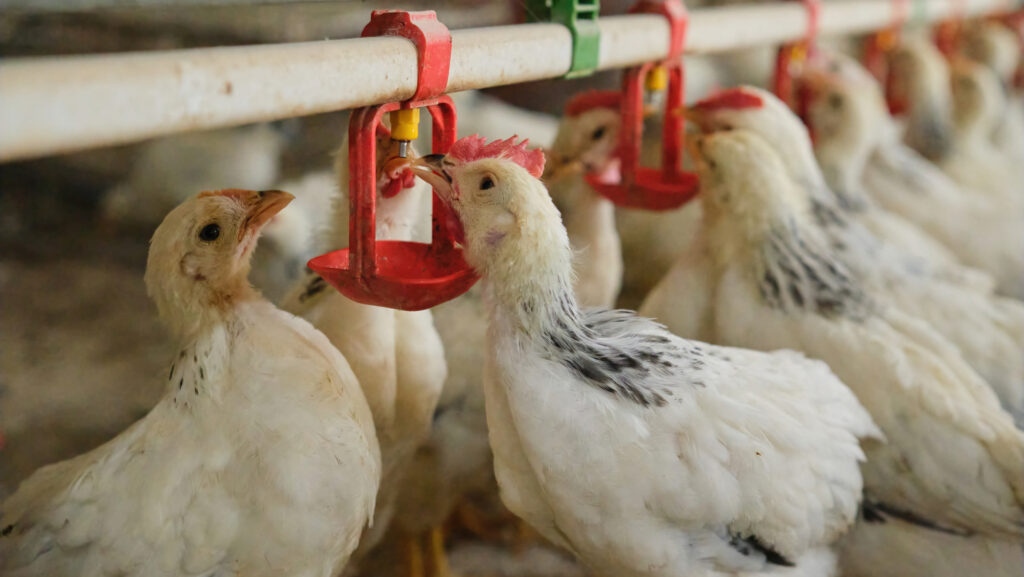How nutraceuticals can aid poultry nutrition and health
 © Adobe Stock
© Adobe Stock Compound feed should contain everything a bird needs to grow successfully.
However, other products – dubbed “nutraceuticals” – can be used to provide a boost to the bird’s nutrition and health when required.
This is according to Richard Bailey, head of applied physiology at Aviagen, who says such supplements can help in the face of disease and environmental challenges, problems with feed form, or quality of raw ingredients.
In addition, these natural alternatives avoid the risk of antibiotics resistance.
See also: 9 ways to help keep housed flocks healthy this winter
With a wide range of nutraceuticals to pick from, Richard points out that that they all have different applications and warns that no one product will be appropriate for all scenarios.
Electrolytes
During periods of heat stress, birds may benefit from supplementation with electrolytes (minerals such as sodium, magnesium and potassium), which are critical for essential body processes including heart and nerve function.
“Because birds don’t sweat, they lose heat in two ways. One is by panting, but they also vasodilate at their surface, which means they push blood to their skin to lose heat by radiation,” explains Richard.
As the gut loses blood flow, there will be a reduction in nutrient absorption for growth and oxygen to the intestinal tissues. This can cause damage in the form of oxidative stress.
The tight junctions that hold the gut wall together weaken, and there is increased translocation of potentially harmful bacteria into the bloodstream.
Increased water consumption in hot weather can lead to “flushing” in the gut and further loss of important minerals from the system, he says, adding:
“Electrolytes can help replenish those that are lost, and provision of extra antioxidants can reduce the oxidative stress in the gut.”
Vitamin D
Calcium is also absorbed in the gut, but maximal absorption is only possible in the presence of vitamin D. This process is especially important for laying birds, which draw on calcium in feed to build the eggshell.
“We need to make sure they have enough calcium, otherwise they are going to get a lot of bone resorption,” warns Richard, who adds that vitamin D is essential for bone health as well as contributing towards a healthy immune system.
“There’s been a lot of research that has shown that [vitamin D] is one of the critical nutrients for the immune system, especially when it comes to respiratory disease,” he says, pointing out that during the Covid pandemic, medical professionals recommended that the public increase their Vitamin D intake.
Broilers also have a high requirement for vitamin D, with their rapid growth demanding enough calcium to support bone strength.
However, there can be downsides to supplementation: “The risk of too much vitamin D is that the birds become hypercalcaemic.
“Too much calcium in the blood can lead to kidney stones, gout and calcification of the blood vessels, so always follow the manufacturer’s recommendations,” he warns.
Prebiotics and probiotics
The use of nutrients such as vitamin D is linked to the gut microbiome, which can be enhanced with pre- and probiotics.
“A probiotic is a live microbe that confers a health benefit. It’s what we would call ‘friendly bacteria’,” explains Richard.
“In contrast, a prebiotic is an inert substance that the bird will not digest, but the bacteria will use as a nutrient source and for fermentation. In simple terms, the prebiotic is food for the probiotic.”
The obvious opportunity to use pre- and probiotics is during brooding, when growth of the gut tissues and the immune system is critical.
Lactobacillus-based probiotics are good because they will colonise the gut tissues and stimulate their development, he says, adding:
“Focusing on gut development in the first week of life is critical. The gut develops four times faster than the rest of the animal during this time. It’s the best time in a bird’s life to stimulate development.”
Stresses linked to feed changes, or infectious disease challenges such as coccidiosis, will also put the gut microbiota at risk of becoming unbalanced.
Use of pre- and probiotics will also confer a benefit in these circumstances, he advises.
Essential oils
Further weapons in the armoury against stress are essential oils. Many have antimicrobial properties, which allows them to dampen down bacterial infections at times of stress.
“Take oregano as an example: it contains many compounds, including carvacrol and thymol, both of which are antioxidants as well as anti-inflammatory.
They can help keep the gut balanced during potential periods of unrest,” says Richard.
Essential oils that have antimicrobial effects will affect bacteria in a range of ways, putting stress on the bacteria and either limiting their growth, or disrupting their respiration, he explains.
For example, antioxidative effects mop up free radicals and reactive oxygen species, which can occur under heat stress.
Organic acids
Organic acids are a further type of nutraceutical with antimicrobial properties. These are effective and flexible, says Richard, citing acetic acid and lactic acid as examples that will feed beneficial bacteria in the gut.
By bringing down the pH of the intestinal tract, organic acids make the environment more favourable for so-called good bacteria, which favour acidic conditions.
Another is butyric acid: “This has been proven to strengthen the junctions in the gut and promote intestinal integrity, which is very important in older breeders,” he explains.
He has researched the impact of organic acids on different pathogens, including salmonella and enterococcus.
He says they clearly work if they are used in the correct quantities and can be used as part of a wider strategy to help flock health: “If we’re looking for antimicrobial strategies, they can be really helpful.”
The three stages of bird growth

Dr Richard Bailey describes the three distinct stages of a bird’s development when the use of nutraceuticals may be beneficial:
- Development The early part of a bird’s life, including the brooding period. During this time, it is rapidly developing its digestive and immune systems. This means it can be vulnerable to infection, but also has the greatest potential to respond positively to gut health products.
- Transition This is the period of the bird’s life where the young gut microbiota is at risk of becoming unbalanced, for example because of feed changes, peak coccidiosis challenge or bird handling. Using products that can bolster the gut against the growth of harmful pathogens may help increase the likelihood of good production outcomes.
- Maintenance This is when the gut is fully developed and in homeostasis. This phase can be quite variable in its requirements, with some farms requiring no further support. However, seasonal or nutritional issues may require occasional top-ups with supplements.
